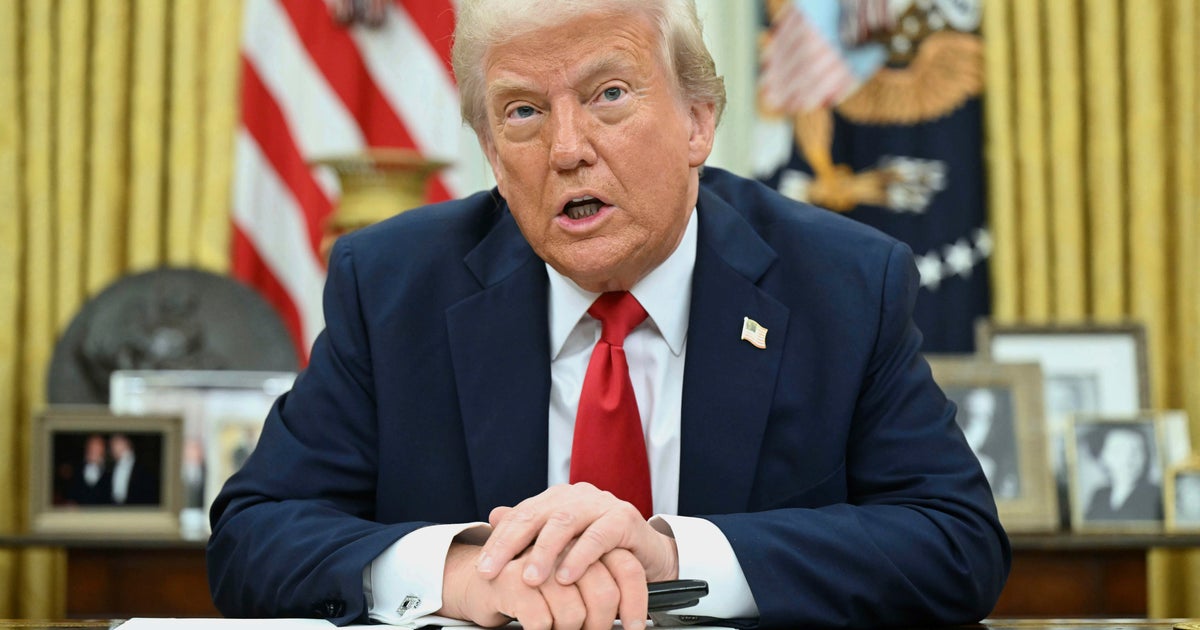Trump administration lists Quebec language law Bill 96 as trade barrier | CBC News
The Office of the U.S. Trade Representative released its annual list of global trade barriers Tuesday, and it includes Quebec’s controversial language law Bill 96 as a trade irritant between the two countries.
The nearly 400-page National Trade Estimate Report lists in almost encyclopedic detail all of the tariff and non-tariff barriers present in countries that import U.S. goods and services.
While the report is a catch-all of trade irritants compiled by bureaucrats each year and does not necessarily reflect the priorities of U.S. President Donald Trump, it still prompted a strong response in Canada on Tuesday.
Bloc Québécois Leader Yves-François Blanchet accused Mark Carney of siding with Trump and urged Quebecers to turn on the Liberal leader.
“Mr. Carney seems to think the same thing as Mr. Trump does. How could Quebecers consider even one instant placing their trust into that man?” Blanchet said during a campaign stop in Sainte-Anne-des-Monts, Que.
“There’s one way [for Qubecers] to protect their right to live and work and be happy in French, is to trust Quebecers,” he added.
Blanchet’s criticism follows Carney’s remarks Monday that a government led by him would act as an intervenor at the Supreme Court of Canada should it every hear a challenge to Bill 96.
Carney said he would do so not because he has a problem with the legislation, but because he opposes any province’s pre-emptive use of the notwithstanding clause to pass laws.
In Winnipeg on Tuesday, Carney dismissed the notion that he would every negotiate with the U.S. about issues that affect the French language, culture or supply management. Asked if he was willing to stand by that commitment and protect Quebec whatever the cost, Carney answered “yes.”
“In a negotiation when you set things aside, they remain off the table,” he said. “I’ve been making that commitment repeatedly. I’m setting aside French language and culture and supply management.
“I know how to negotiate and I want this to be clear — those things are off the table.”
U.S. concerns over trademarks, labels
Bill 96 passed the Quebec Legislature in June 2022 with provisions that kicked in right away. Other provisions of the law took effect in June 2023 with further measures taking effect this June. The law amends the Charter of the French Language in Quebec, otherwise known as Bill 101.
Among other things, Bill 96 limits the use of English — one of Canada’s two official languages — in the public service and permits inspectors to conduct searches and seizures without warrants at businesses.
The changes impact the use of French in the judicial system, health care, schools, workplaces and businesses across the provincial economy, but the issue singled out as a trade barrier by the U.S. is how it impacts trademarks and labelling.
“U.S. businesses have expressed concerns about the impact that Bill 96 will have on their federally registered trademarks for products manufactured after June 1, 2025, which is when the relevant provisions of Bill 96 enter into force,” the National Trade Estimate Report said.
When the new provisions kick in this summer, trademarks displayed on a product can only appear in English if there’s no French version of the trademark registered. If the trademark or label contains generic terms or descriptions that are not in French, the trademark must be changed to include a French version of those terms and descriptions, as well as the English version.
Companies found to have violated these changes to the law can face fines of up to $90,000 per day for their third offence, while individuals can be fined up to $42,000 a day for their third offence.
The Office of the U.S. Trade Representative said its officials met with Canada’s trade counterparts at the World Trade Organization last June, where Bill 96 came up.
“The United States encouraged the Quebec provincial government to take into consideration business sector concerns and involve businesses in the drafting of further interpretive guidance on this law and the final regulation,” the National Trade Estimate Report said.
Paul St-Pierre Plamondon, leader of Quebec’s Parti Québécois, said the U.S. move to list Bill 96 as a barrier to trade demonstrated the Trump administration’s hostility toward Quebec’s economic and linguistic interests.
Plamondon also took aim at Carney’s objections to how the law was passed.
“We’re going to be in a potential negotiation where Donald Trump says, ‘I have a problem with Bill 96,’ and Mark Carney says, ‘Me too,'” St-Pierre Plamondon said.










